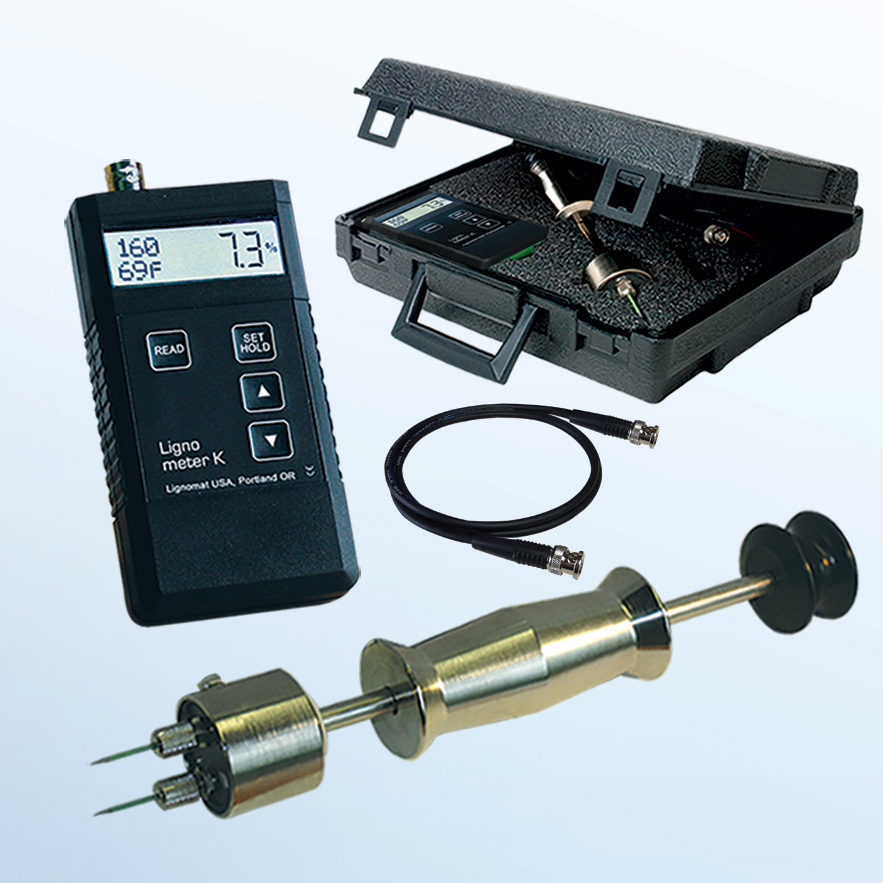Comprehending the Different Sorts Of Moisture Meters and Their Applications
Comprehending the Different Sorts Of Moisture Meters and Their Applications
Blog Article
The Ultimate Overview to Dampness Meters: A Comprehensive Introduction and How They Can Save You Money
In the realm of structure upkeep, building, and numerous industries, the importance of precisely gauging wetness degrees can not be overemphasized. Moisture meters act as essential tools in discovering and checking moisture content in materials, assisting in avoiding expensive problems and making sure the top quality of items. Understanding the subtleties of different kinds of wetness meters, their applications, and the potential cost-saving advantages they offer can be a game-changer for professionals and companies alike. Finding just how these tools can not just simplify processes but also add to economic cost savings is a journey worth beginning on.
Kinds of Moisture Meters
Different kinds of wetness meters are offered for different applications in various markets. One typical type is the pin-type dampness meter, which gauges the electrical resistance between 2 pins placed into a material. This type appropriates for wood, drywall, and various other structure products. Pinless moisture meters, on the other hand, use electro-magnetic sensing unit plates to scan a bigger area without creating damages to the material's surface. Moisture Meter. These meters are optimal for quickly analyzing dampness degrees in big locations such as floors and wall surfaces.

Infrared wetness meters gauge the thermal residential or commercial properties of a material to establish its moisture material non-invasively, making them useful for applications where pin or pinless meters might not be ideal. Comprehending the various types of moisture meters offered can assist sectors select the most suitable device for their specific dampness measurement needs.

Advantages of Utilizing Moisture Meters
Dampness meters provide indispensable advantages in precisely keeping track of and evaluating wetness degrees in diverse products and environments. One of the key benefits of using wetness meters is the prevention of possible damages caused by excess wetness.
Moreover, utilizing wetness meters can lead to raised energy efficiency. In farming settings, moisture meters play a crucial role in maximizing crop returns by making it possible for farmers to keep an eye on soil dampness degrees and make notified irrigation decisions.
Just How to Choose the Right Dampness Meter
Picking the appropriate moisture meter includes considering essential elements such as material compatibility, dimension array, and calibration precision. When selecting a moisture meter, it's important to make sure that the meter is appropriate for the particular product you will be screening. Various products have varying electrical buildings that can influence wetness analyses, so selecting a meter created for your material is important for precise results. Furthermore, consider the dimension range of the dampness meter. Ensure that the meter can identify wetness levels within the range required for your applications. Calibration precision is Full Article one more essential element to keep in mind. Select a dampness meter with trusted calibration to ensure constant and accurate analyses. Some meters may require routine calibration adjustments, so recognizing the calibration procedure is very important. By meticulously evaluating these variables, you can choose a moisture meter that fulfills your demands and offers exact wetness measurements for your jobs.
Proper Strategies for Wetness Meter Usage

Price Financial Savings Via Dampness Meter Applications
Exactly how can the critical application of dampness meters lead to substantial cost financial savings across various industries? In the farming market, moisture meters aid in figuring out the ideal time for gathering plants, avoiding over-drying or excess dampness that can affect the last item's quality.
In a similar way, in building, dampness meters assist protect against expensive problems by spotting moisture degrees in building products, such as timber or concrete, which can lead to architectural concerns otherwise resolved without delay. By recognizing issue locations early, specialists can take corrective steps to avoid comprehensive repair work or substitutes, eventually conserving money and time.
Moreover, in the food processing sector, dampness meters are necessary for keeping an eye view it on product top quality and guaranteeing conformity with safety laws. By accurately gauging dampness material in food items, suppliers can stop putridity, maintain freshness, and decrease waste, causing significant price savings. On the whole, the strategic application of wetness meters is a useful financial investment that can bring about considerable price decreases and improved efficiency throughout various industries.
Final Thought
In final thought, moisture meters about his are useful devices for gauging and discovering moisture degrees in numerous products. By utilizing the best wetness meter and adhering to correct strategies, individuals can successfully prevent pricey damages created by excess wetness.
Wetness meters offer as vital tools in identifying and checking moisture material in products, aiding in preventing pricey damages and ensuring the top quality of products. Infrared wetness meters measure the thermal residential or commercial properties of a product to determine its wetness web content non-invasively, making them helpful for applications where pin or pinless meters might not be ideal.Dampness meters supply very useful advantages in properly evaluating and keeping an eye on dampness degrees in diverse materials and atmospheres. In agricultural settings, wetness meters play an important duty in maximizing plant returns by making it possible for farmers to keep track of soil dampness levels and make educated watering choices.In verdict, wetness meters are useful tools for detecting and gauging moisture degrees in different products.
Report this page